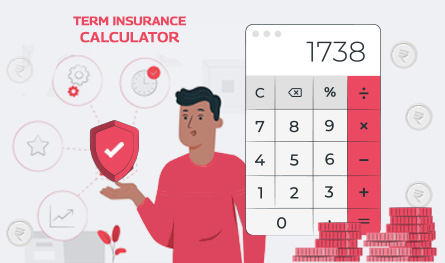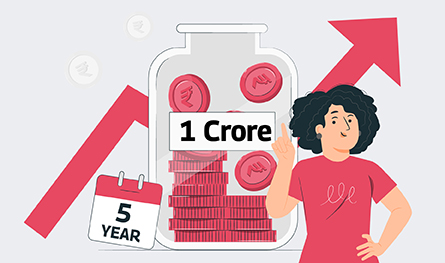Related Articles
 Jan 08, 2025
Jan 08, 2025
Is Varicose Vein surgery covered under the health insurance policy in India
 Health Insurance
Health Insurance
.png)
.png)
The coinsurance is an amount that is directly paid to the insurance company. It is frequently paid and expressed in terms of a percentage that is pre-fixed. If a policyholder opts for a health plan with coinsurance, they need to pay a particular part of the healthcare bill, while the remaining expenses are covered by the health insurance company.
The health insurance company gives the choice of co-insurance to the policyholder at the time of buying a policy. The policyholder can decide to either select or avoid the coinsurance as per their need.
However, if you select coinsurance under your health insurance plan, it lowers the claim amount paid by the insurance provider and thereby reduces the premium of the plan as well.
Let us walk through the various aspects of coinsurance in health insurance, in this post.
Coinsurance in medical billing is the amount of claim of your health insurance that you raise for a certain health condition. The insured shared this amount with the insurer to pay the health care bills claimed by you. So, coinsurance in medical billing comprises cost sharing and paying a predetermined amount of price by the insured for settling a claim with the hospital. coinsurance in medical billing is generally paid after completing the yearly deductibles are taken care of.
As discussed above, coinsurance in medical billing means an amount of a healthcare cost that the insured is responsible for paying after meeting the required deductible. As we know, deductible is the sum that an insured has to spend every year to pay for the approved healthcare services before the health plan starts covering these expenses. Once the deductible amount is met, the insured and the insurer can divide the remaining expenses as per the terms of coinsurance in medical billing to meet the required need. This might turn out to be half the cost of the claim made by you, which can be too much. However, you get to pay much less for your health insurance in terms of paying the annual premiums.
For instance, if the coinsurance in medical billing predetermined under your health plan is 20%, you must pay that cost after meeting the deductible amount. On the other hand, the health insurance company would be paying the remaining 20% coverage of your health claim.
However, you may note that coinsurance in medical billing is just one way of paying the health insurance claims. In addition, there are other ways such as deductibles, copays etc. Besides, there is another option called ‘out-of-pocket maximums’, which means the highest amount paid by the insured from his/her pocket over the 1-year policy tenure. In this case, once the insured uses up the maximum amount of the plan, the insurer will pay the rest 100 percent of the expenses on their own.
It is important to note that if you opt for coinsurance, your insurer will not pay for the entire amount of your health claim. The payment option will be decided as per the coinsurance in medical billing factor. Further, in this case the deductibles are also paid by the insured, while the rest is divided between the insured and the insurer.
Unless you understand the coverage and the advantages of your policy including coinsurance in medical billing and tax deductions under section 80D, it will be difficult to choose a plan effectively.
Once the policyholder meets the deductible amount, he/she has to pay for the coinsurance. The deductible payment is tracked by your health plan and it can be seen in the Explanation of Benefits (EOB) that your insurer offers you after every claim. Hence, the required payment of coinsurance that needs to be paid is indicated on the EOB, which is directly paid to the hospital or other healthcare service providers as required.
Buying a health insurance plan with coinsurance might offer some benefits as mentioned below:
A monetary contribution that the policyholder pays towards a particular healthcare expense is called a Copay. This contribution can be a fixed amount or a certain percentage of the total bill/claim. The remaining amount is paid by the insurer. On the other hand, Coinsurance is a fixed percentage of a medical/healthcare bill that the insured is required to pay for every claim they make.
The copay clause is levied only on specific healthcare services, while coinsurance is paid as a percentage of the expenses of a healthcare service. Hence, coinsurance vs copay are two different aspects of health insurance and they apply in different situations.
A copay is a definite amount that the insured pays for different purposes like doctor visits, prescriptions etc. Deductible is a fixed amount that a policyholder pays to cover health costs before their health insurance plan starts contributing. On the other hand, Coinsurance is the percentage of costs you the insured pays after meeting the deductibles. So, under Coinsurance in medical billing, you share the expenses of bills with the insurer.
Here are some advantages of coinsurance:
The key benefit of purchasing a coinsurance health insurance plan is that the you get the insurance plan at low rates
Hence, it helps to control costs. You can pay low premiums for the health policy by choosing coinsurance in health insurance
But you will have to pay a certain percentage of your medical expenses under the plan.
Reinsurance is the insurance or coverage of an insurance company. An insurer purchases reinsurance to insure the company against large losses. The insurer shifts the risk of large losses by purchasing insurance from a Reinsurer. Coinsurance, on the other hand, is a percentage the policyholder pays for medical expenses. In coinsurance, the policyholder shares the expenses or bills to be paid with the insurer.
Coinsurance in medical billing refers to the percentage of cost of treatment that has to be paid by the insured after paying the deductibles.

Paybima Team
Paybima is an Indian insurance aggregator on a mission to make insurance simple for people. Paybima is the Digital arm of the already established and trusted Mahindra Insurance Brokers Ltd., a reputed name in the insurance broking industry with 17 years of experience. Paybima promises you the easy-to-access online platform to buy insurance policies, and also extend their unrelented assistance with all your policy related queries and services.


Let’s be honest – life insurance planning isn’t exactly someone’s weekend hobby. It is the financial equivalent of flossing: we understand its importance, but we tend to put it off. But somewhere between balancing work and life, you might realise you need to have a solid plan in place – just in case.


If you think of life insurance, chances are you are picturing something people buy in their 30s or 40s. But what if you are 65 or older and just getting started? The good news is that you are never too late. Whether you are thinking of easing the financial burden on your family, covering final expenses, or simply leaving behind a legacy, there are life insurance options tailored just for you.
This article will be a guide to life insurance for senior citizens above 65 years, explaining why it is important, the type of insurance options, and how to get the right policy for you.


Health insurance plans are purchased with the hope of medical protection in times of need. However, sometimes it ends up being a source of surprise and disappointment. This mostly happens when people rush to buy health insurance plans, often overlooking essential aspects. Ignoring waiting period clauses, misunderstanding exclusions, and being unaware of sub-limits can lead to unwanted problems in the future.


If you are looking at investment policies offering INR 1 Crore in 5 years, we talk about some excellent plans in this post to help you choose the best one and reach your goal. However, it is important not to get swayed. Doing proper research and taking advice from financial or insurance advisors is important. Learn about such investment plan in this post.

The last few years have made it very clear that having health insurance is essential for everyone. Whether you are a young professional or a senior citizen, are single or have a family to support, health insurance cannot be ignored. Keeping this in mind, health insurance companies offer comprehensive plans that suit people with varied insurance needs.
